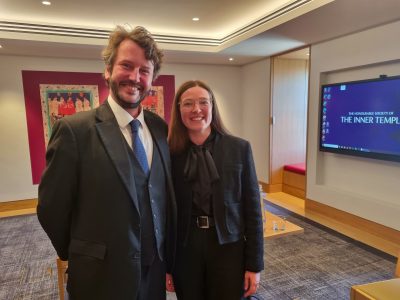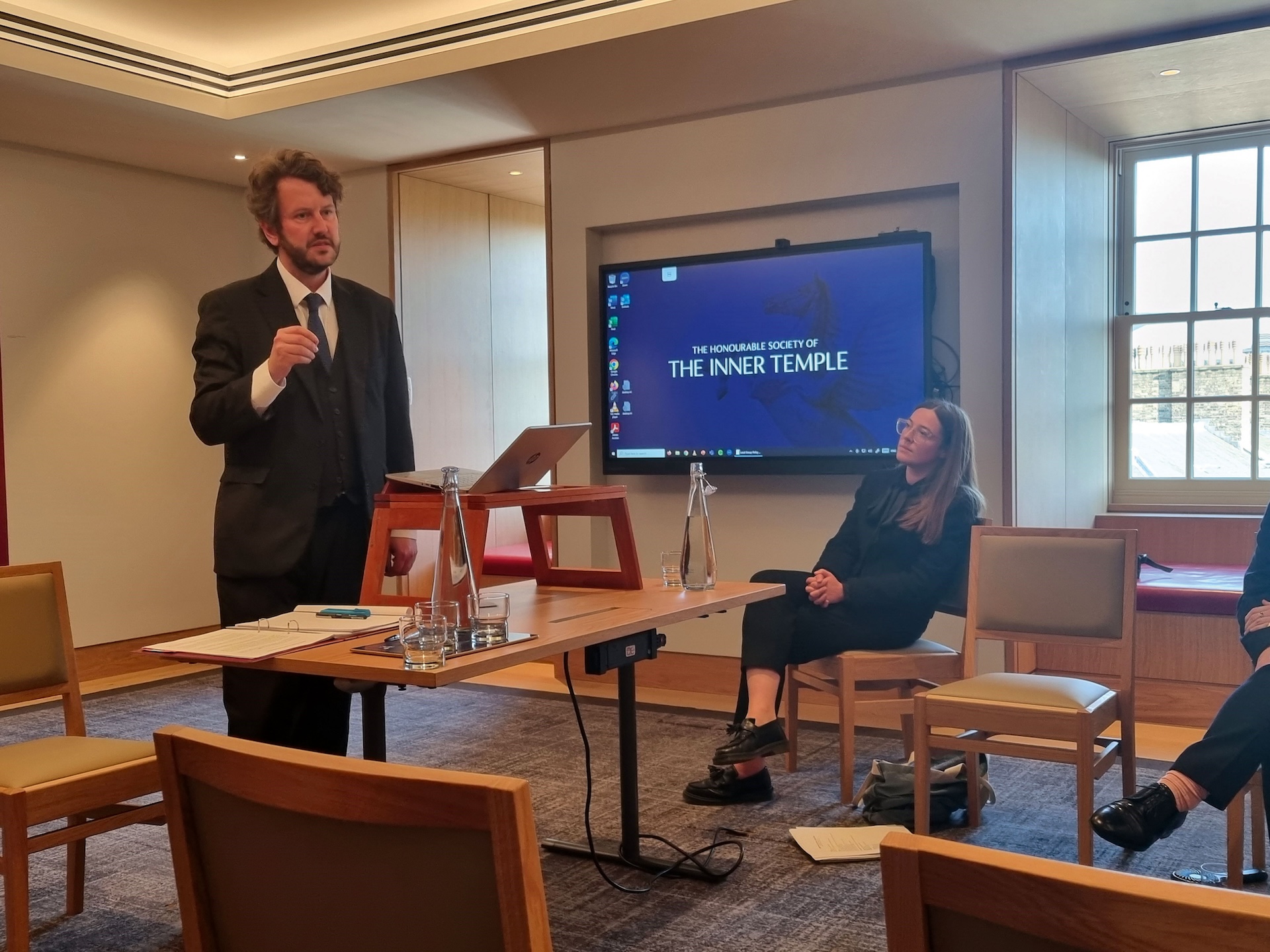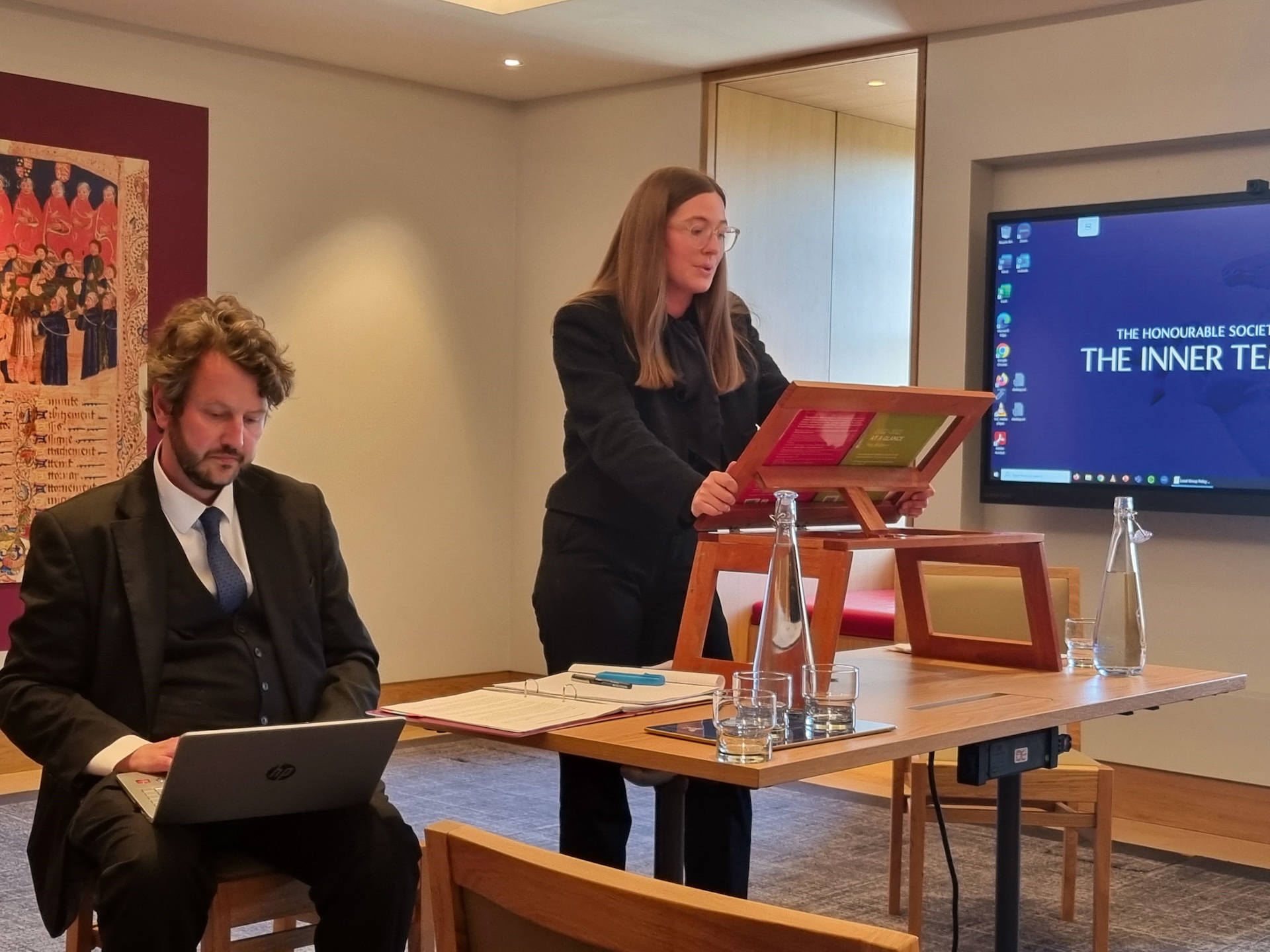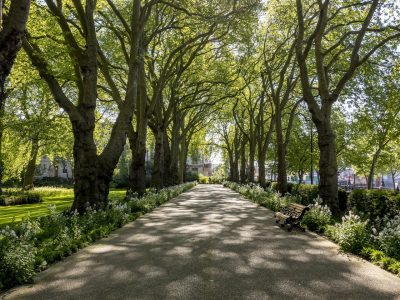
Advocacy Pupil Prize Finalists
The Finalists – Alex Ryle and Christine O’Connell
Alex Ryle
Second Six Pupil
5 King’s Bench Walk, Chambers of Sarah Forshaw KC and Mark Heywood KC
Anyone that thinks they have experienced a steep learning curve should step into the shoes of a second-six pupil on their first day on their feet. Everyone’s mileage will vary, but it is safe to say that the mixture of excitement, apprehension, and pressure is unique.
Having spent hours in the classroom, secured pupillage and spent six months absorbing the advocacy of others, the moment arrives. Silence falls in the courtroom (or, as much silence as there ever is in a regional magistrates’ court). The Judge (or, more likely, the chairperson) turns to face you.
“Yes, Mr Ryle.”
How is one to prepare for the moment when the balloon goes up? If you are lucky, as I have been, and are at a chambers that is not only hugely supportive but also provides a brilliant and comprehensive pupillage advocacy training programme of its own, you are already on the right track.
The Inner Temple Pupils’ Advocacy Programme rounds out and expands that other training, finding yourself outside your usual chambers safe space where every face is familiar.
A key skill in practice is to engage with strangers in the shortest time. Moments after meeting one another, we begin with large group case analysis sessions. Those proved invaluable on two levels: for the sparking of ideas between all the participants, and the chance to meet others of the same level from a colossal range of disciplines.
Each barrister has their own method of case preparation, and at this stage all of us are casting around for ideas that may, or may not, work for us. It would be a mistake to think you can only learn from those more experienced than you are. I picked up many valuable tools at these sessions, which I am using in practice as I write.

The Wotton House residential weekend is the culmination and highlight of the course. Having got to know the other pupils, we are all thrust into a fast-turnaround series of workshops, and now it is the new trainers that are strangers to us; at least until the end of the first morning.
It seemed we pupils were outnumbered three-to-one by generous practitioners who had given so freely of their time; many coming straight from court and heading straight back there on the Monday morning. I am sure I speak for all when I say I am hugely grateful to each and every one of them.
Watching yourself on video is an uncomfortable experience, but vital to iron out problems, and to properly assess your advocacy. Dual reviews held for each exercise, live and recorded, also brought the benefit of differing perspectives, with each trainer’s different style and approach.
Applications day pushed and pulled together the skills practised on the residential weekend with the drafting and presentation of skeleton arguments. A notch closer to the reality of being on your feet in court, with the additional requirement of creating a careful roadmap to support and enhance your argument.
Finally, stepping into the hallowed halls of the Royal Courts of Justice for the mock trials was the second finale of the course. That trial pulled all of the threads together, in real time, in front of a High Court Judge. It was enjoyable, educational and vital in equal measure.
My view has always been that you should learn to be good before you learn to be quick. This comprehensive training worked on precisely those lines, slowly increasing the pressure of time and rapid judgment, as we worked through the exercises. It boosted my confidence and skills and introduced me to many new faces; from the vastly experienced, to those at my own level.
A few weeks later, I found myself defending a short hearing in the Crown Court. It transpired that I was to be prosecuted by my opponent from the mock trial. A small, happy reunion. Ultimately, that for me is what the Bar is all about. The people. It has been a privilege to spend time with a group of such obvious (and faintly terrifying) talent and ability. I look forward to practising alongside them for years to come.
Christie O’Connell
Advocacy Pupil Prize Finalists
Attended the Inn’s Pupils Advocacy Course in October/November 2022
During the non-practising component of pupillage, pupils are required to complete an advocacy course with the aim of preparing pupils to be ‘on their feet’. Those undertaking pupillage in London and the South East would ordinarily complete a course offered by their Inn. The Inner Temple offers two courses, and I completed the October/November course. Each inn structures its course differently, but at The Inner Temple, it is spread over several weeks and combines several evening sessions with a residential weekend.
The first few sessions were held in the Inn’s new education and training facilities and focused on preparing us for making closing submissions/speeches and case analysis in both the civil and criminal arenas.
Residential Weekend
The next phase of the advocacy programme saw us travel to Wotton House in Dorking for a residential weekend jam-packed full of activities and training sessions.
After we arrived on Friday morning, we were put into groups of six and sent into our breakout rooms for a session with a trainer from the London Academy of Music and Dramatic Art. Our trainers gave us tips and tricks on how to use acting and presentational skills to improve our advocacy delivery. Everyone had prepared a three-minute presentation entitled ‘Something that inspires me’. Topics in my group were wide-ranging and included everything from grandparents to pet dogs. I spoke about the rise of the Lionesses during the Euros and the inspiring work they have done for women in football.
After lunch on Friday, we gathered as a whole cohort to listen to presentations on Cross-Examination and preparing skeleton arguments. The day was concluded with an informal dinner in the Evelyn Suite, followed by drinks in the Library Bar.
Saturday started bright and early with an 8.00am breakfast call. We then split back into our groups to get into the nitty-gritty of showing off our skills in delivering closing speeches and witness handling. We were given the opportunity to act as witnesses for other pupils in our group and practise on each other. We received feedback using the Hampel method, a six-step methodology used to give a trainee advocate feedback on a specific area of their performance. The stages include headnote, playback, reason, remedy, demonstration and replay. Each group had one trainer who stayed with them throughout the weekend, and also a roaming trainer who would review a video of your performance and give you further feedback.
On Saturday evening everyone gathered for dinner in the 1877 restaurant. We were thrilled to be joined by The Inner Temple’s current treasurer, Sir Robert Francis KC, who delivered the talk that evening. The night finished with drinks in the bar area.
The final day of the residential weekend started with the opportunity to replay our closing speeches from the previous day in our groups, giving us ample opportunity to implement everything we had learnt over the course of the weekend. Then, after a few more witness-handling sessions it was time to head back to London.\
Mock Trial
The advocacy training course culminated in an evening of mock trials held in the Royal Courts of Justice. We were given a completely new case in which Bar Course students were brought in to play the witnesses. It was a great opportunity to show off our development and receive some final feedback from our esteemed judges.
Overall, the advocacy course was an invaluable experience as it provided the perfect opportunity to develop my skills in an environment where it was acceptable to make mistakes. I finished the programme feeling more confident in my advocacy ability and ready to tackle my Second Six.

